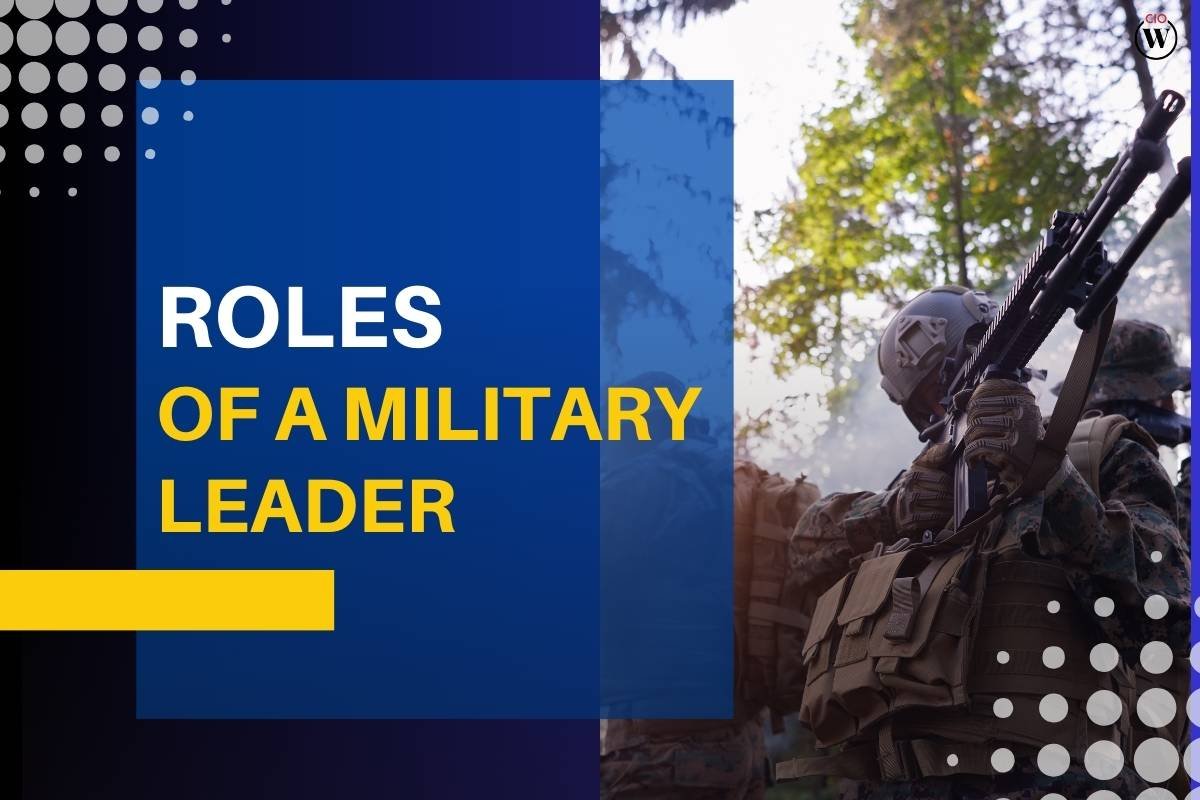In the dynamic and ever-evolving landscape of the modern world, the roles of a military leader have become increasingly complex and multifaceted. The term “roles of a military leader” encompasses a broad spectrum of responsibilities, from strategic decision-making to tactical execution. In this article, we will delve into the various dimensions that define the roles of a military leader, highlighting their significance in maintaining peace, security, and order on both national and international levels.
Strategic Vision and Decision-Making
At the core of a military leader’s responsibilities is the formulation and execution of a strategic vision. This involves developing a clear understanding of the geopolitical landscape, identifying potential threats, and devising long-term plans to safeguard national interests. The roles of a military leader in strategic decision-making include assessing the capabilities of both allies and adversaries, understanding geopolitical shifts, and crafting policies that align with the nation’s overarching objectives.
In the contemporary world, where the dynamics of conflict are constantly evolving, a military leader’s ability to adapt and innovate is paramount. Whether dealing with traditional threats or emerging challenges like cyber warfare and asymmetric warfare, strategic vision remains the cornerstone of effective military leadership. The roles of a military leader involve not only foreseeing potential threats but also devising innovative and adaptive strategies to counter them.
Effective Communication and Team Building
The success of any military operation hinges on effective communication and cohesive teamwork. Military leaders must possess excellent communication skills to convey orders, objectives, and expectations clearly and concisely. The roles of a military leader extend to fostering a culture of open communication within the ranks, ensuring that every member of the team understands their role and responsibilities.

Furthermore, a military leader plays a crucial role in team building. This involves creating a sense of camaraderie and mutual respect among the personnel under their command. By fostering a positive and inclusive environment, a military leader can enhance the overall effectiveness of the team, leading to increased morale and motivation. In times of crisis, a cohesive and well-coordinated team can make all the difference in the successful execution of a mission.
Tactical Expertise and Operational Planning
The roles of a military leader extend to the tactical level, where their expertise in operational planning becomes crucial. Tactical decision-making involves the ability to assess real-time situations, analyze available resources, and make quick and effective decisions on the battlefield. A military leader’s tactical prowess is demonstrated in their ability to adapt to changing circumstances, exploit enemy weaknesses, and minimize risks to their personnel.
Operational planning is a multifaceted aspect of a military leader’s role, involving the coordination of various assets, including infantry, artillery, air support, and intelligence. Successful military operations are the result of meticulous planning, and a military leader must be adept at developing comprehensive and flexible plans that can adapt to unforeseen challenges. The roles of a military leader in operational planning include resource allocation, risk assessment, and the formulation of contingency plans to address unexpected developments.
Ethical Leadership and Morale Boosting
Ethical leadership is an integral component of the roles of a military leader. Beyond strategy and tactics, a military leader must inspire trust and confidence among their subordinates. This involves making ethical decisions that prioritize the well-being of the personnel under their command and upholding the principles of justice and integrity. The actions of a military leader set the tone for the entire organization, influencing the ethical conduct of the entire military force.

Moreover, a military leader plays a pivotal role in boosting morale within their ranks. The demanding nature of military service can take a toll on the mental and emotional well-being of personnel. A leader’s ability to empathize, support, and motivate their team is crucial in maintaining high levels of morale. The roles of a military leader include providing guidance during challenging times, recognizing and rewarding achievements, and fostering a sense of pride and purpose among the troops.
Adaptability and Innovation
The contemporary geopolitical landscape is characterized by rapid technological advancements and unconventional threats. Military leaders must be adaptable and innovative in their approach to address these challenges effectively. The roles of a military leader extend to staying abreast of technological developments, understanding the implications of emerging threats, and incorporating innovative solutions into military strategies.
Adaptability is particularly crucial in the face of asymmetric warfare, where traditional military doctrines may prove inadequate. A military leader’s ability to think creatively and implement unconventional strategies can be a decisive factor in countering unconventional threats. The roles of a military leader in fostering a culture of innovation within the armed forces involve encouraging research and development, embracing new technologies, and adapting training programs to meet the evolving demands of modern warfare.
Diplomacy and International Collaboration
In an interconnected world, the roles of a military leader extend beyond national borders. Diplomacy and international collaboration are integral aspects of military leadership, especially in addressing global threats and conflicts. Military leaders must navigate complex diplomatic landscapes, building alliances, and maintaining relationships with foreign counterparts to enhance regional and global security.
The roles of a military leader in diplomacy involve representing the nation’s interests on the international stage, participating in joint military exercises, and collaborating with allies to address common security challenges. The ability to forge partnerships and alliances contributes to a more stable and secure international environment. Military leaders must strike a delicate balance between demonstrating strength and projecting a willingness to engage in diplomatic solutions to conflicts.
Risk Management and Crisis Response
The roles of a military leader include effective risk management and crisis response. Inherent in military operations are various risks, ranging from tactical challenges to geopolitical complexities. Military leaders must be adept at assessing risks, developing mitigation strategies, and responding decisively when faced with unexpected crises.

Crisis response involves the ability to make rapid and informed decisions under pressure. A military leader’s capacity to maintain composure and provide clear direction during crises can significantly impact the outcome of a situation. The roles of a military leader in crisis response include coordinating resources, managing information flow, and ensuring a swift and effective deployment of forces to address the crisis at hand.
Training and Development of Personnel
The roles of a military leader extend to the training and development of personnel under their command. A well-trained and disciplined force is essential for the success of military operations. Military leaders are responsible for designing and implementing training programs that enhance the skills and capabilities of their personnel, ensuring they are prepared for the challenges they may face in the field.
Furthermore, a military leader plays a crucial role in the professional development of their subordinates. This involves identifying and nurturing talent within the ranks, providing opportunities for career advancement, and fostering a culture of continuous learning. The roles of a military leader in training and development contribute to the overall effectiveness and readiness of the armed forces.
Conclusion
In conclusion, the roles of a military leader are diverse and demanding, reflecting the complexities of the modern world. From strategic vision and decision-making to tactical expertise and operational planning, military leaders shoulder a myriad of responsibilities. Effective communication, ethical leadership, and adaptability are essential qualities that define successful military leadership.
The contemporary military landscape requires leaders who can navigate geopolitical complexities, forge international alliances, and respond adeptly to emerging threats. The roles of a military leader encompass not only the traditional aspects of warfare but also extend to diplomacy, crisis response, and the development of personnel. In an era of rapid technological advancements and evolving threats, military leaders must remain vigilant, innovative, and committed to ensuring the security and well-being of their nations.
The roles of a military leader are a testament to the dynamic nature of the profession, highlighting the need for leaders who can effectively balance strategic thinking with tactical proficiency, ethical considerations with the demands of the battlefield.









